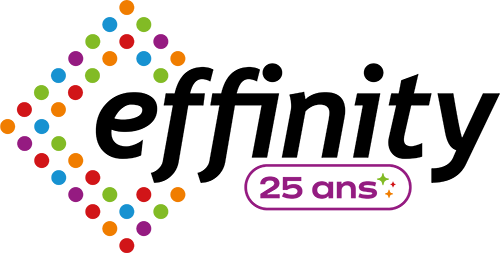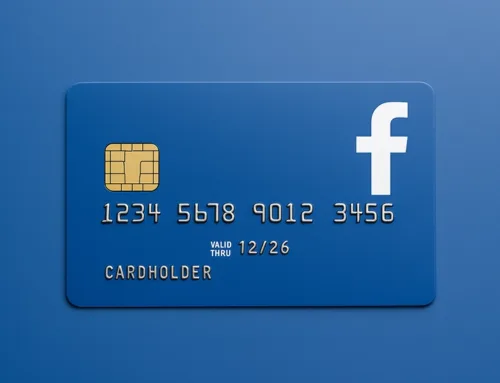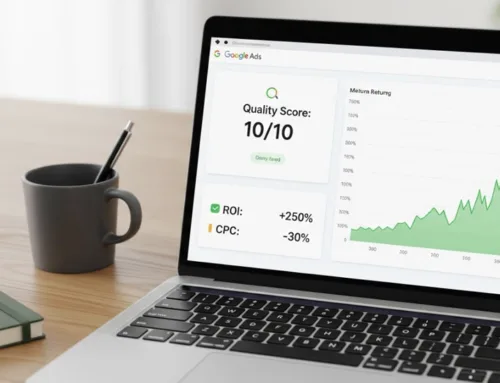The success of a Google Ads campaign depends on more than just the right message or a sizeable budget. The real performance lever is targeting. No matter how well written, an ad is ineffective if it doesn’t reach the right people, at the right time, with the right message. Optimizing targeting on Google Ads improves ad relevance, maximizes return on investment (ROI) and keeps costs under control. Here’s how.
Use Google Ads’ advanced targeting criteria
There are many reasons to launch Google Ads campaigns, not least of which is the wide range of targeting criteria available. When used properly, they can be used to refine your audience to reach only the most relevant prospects.
Keywords and search intent
The choice of keywords is fundamental. Long-tail expressions should be favored: more specific, they convey a more precise purchasing intention and are generally less competitive. For example, “cheap women’s running shoes” will be more effective than the generic keyword “shoes”.
Also consider excluding certain keywords to avoid unqualified clicks. Google Ads lets you add keywords to exclude, to filter out searches that don’t match your offer.
Geographic targeting
Geographic targeting is essential, especially for local businesses or services available in specific areas. You can target a country, a region, a city, or even a radius of a few kilometers around your point of sale.
Demographics
Google Ads lets you target by age, gender, family situation or estimated income. For example, a home insurance company could focus its campaigns on 30-50 year-old homeowners, excluding younger people or renters.
Device type and broadcasting time
Tailor your campaigns according to device types (mobile, desktop, tablet) and time slots. A mobile app will make more sense targeting smartphones in the evening, while a B2B service will work better on desktop during office hours.
Behaviors and interests
Google lets you target according to browsing habits, recent searches and areas of interest. This behavioral data is invaluable for anticipating the needs of Internet users, even if they haven’t yet typed in your keywords.
Audiences and retargeting
Create personalized audiences (existing customers, site visitors, shopping cart abandoners, etc.) to set up effective remarketing campaigns. You can also target audiences similar to your best customers.
Finally, control the placements where your ads appear (sites, YouTube channels, apps), to avoid spending budget on irrelevant media.
Rely on the expertise of a Google Ads agency
Managing a successful Google Ads campaign takes time, analysis and in-depth knowledge of the platform. That’s why calling in a specialized agency or certified consultant can make all the difference.
Optimum campaign configuration
An agency will structure your campaigns to isolate the best performing ad groups, tailor messages to customer segments and optimize landing pages. It will also know how to set up keyword exclusions, bid adjustments and audience segmentation.
A targeting strategy in line with your objectives
Before even launching campaigns, an agency begins by analyzing your market, defining your personas, and building a targeting strategy aligned with your conversion tunnel.
A constant watch
Google Ads is constantly evolving. Specialized agencies keep abreast of the latest innovations (automation, AI, new ad formats) and adjust your strategy accordingly.
Using artificial intelligence to improve targeting
The artificial intelligence built into Google Ads makes it possible to automate and refine targeting in real time, thanks to the analysis of massive volumes of data. To find out more on this subject, you can read our article on AI Max, the new suite of features that Google has rolled out.
Predictive analysis
AI identifies buying behavior, seasonal trends or weak signals, to automatically adjust bids when the chances of conversion are highest.
Dynamic segmentation
Based on browsing history, interactions with your brand or cross-device data, AI creates dynamic, high-value audience segments.
Customize your ads
Google’s algorithms adapt the content of your ads (text, images, CTAs) to each individual user, according to their profile, history or browsing moment. The result: more impactful messages and improved performance.
Continuous analysis and adjustment with the right tools
Optimizing targeting on Google Ads is not a one-off exercise, but a continuous process of analysis and adjustment. There are several tools to help you manage your campaigns effectively:
Google Keyword Planner
Google Keyword Planner is a free tool for finding and analyzing keywords for SEA campaigns. It proposes keyword ideas, estimates costs, suggests ad group organization and helps define a suitable budget to optimize marketing strategy. Useful for estimating the level of competition and detecting niche opportunities.
Google Ads Performance Planner
The Performance Planner is a tool to help plan and optimize advertising budgets. It provides forecasts, simulates the impact of campaign adjustments, identifies seasonal opportunities and facilitates budget management across multiple accounts and campaigns. It simulates the impact of a change in budget, bidding or targeting on future performance.
Google Analytics 4 (GA4)
Google Analytics 4 is an essential property for analyzing visitor behavior on your site and assessing friction points in the customer journey.
Conversion tracking and KPIs
Tracking click-through rate (CTR), cost-per-click (CPC), conversion rate, cost-per-acquisition (CPA) and return on advertising spend (ROAS) is essential for optimizing your campaigns.
A/B testing
Test several ad variants (titles, visuals, descriptions) to identify the most effective combinations.
Avoid common targeting errors
Even the best tools can produce mediocre results if basic mistakes are not avoided:
- Overly broad targeting wastes budget by attracting unqualified traffic.
- A poorly calibrated budget can hamper the performance of a well-structured campaign.
- Ignoring the algorithm’s learning phase (the first 10-14 days) prevents Google from collecting enough data to optimize bids.
- Lack of consistency between the ad and the landing page degrades the conversion rate.
Optimizing targeting on Google Ads is a masterful blend of strategy, technique and analysis. It requires a thorough knowledge of your target audience, a mastery of Google’s advertising tools and a clear vision of the objectives of each campaign.
Using a certified agency can considerably speed up results, saving you time and reducing costly errors. In all cases, the key to success lies in a structured approach, regular testing and data-driven continuous improvement.




